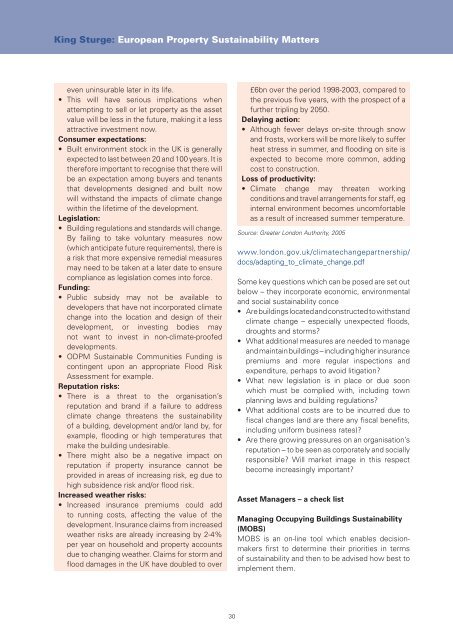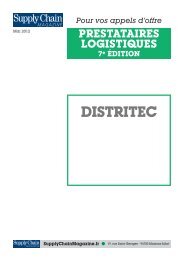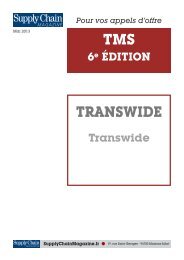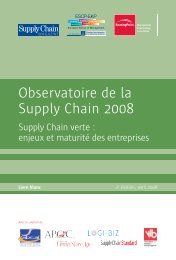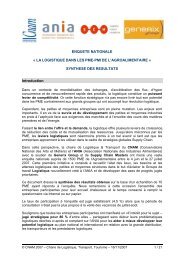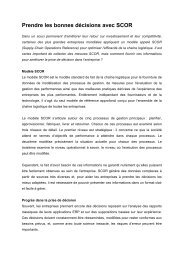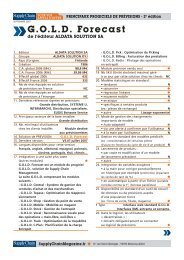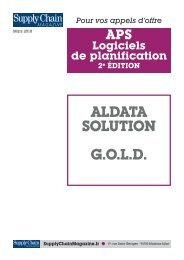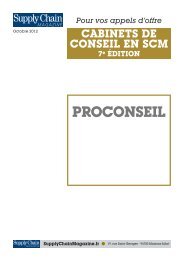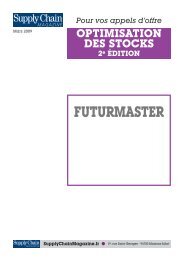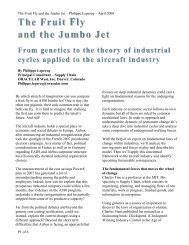European Property Sustainability Matters European Property ...
European Property Sustainability Matters European Property ...
European Property Sustainability Matters European Property ...
Create successful ePaper yourself
Turn your PDF publications into a flip-book with our unique Google optimized e-Paper software.
King Sturge: <strong>European</strong> <strong>Property</strong> <strong>Sustainability</strong> <strong>Matters</strong><br />
even uninsurable later in its life.<br />
• This will have serious implications when<br />
attempting to sell or let property as the asset<br />
value will be less in the future, making it a less<br />
attractive investment now.<br />
Consumer expectations:<br />
• Built environment stock in the UK is generally<br />
expected to last between 20 and 100 years. It is<br />
therefore important to recognise that there will<br />
be an expectation among buyers and tenants<br />
that developments designed and built now<br />
will withstand the impacts of climate change<br />
within the lifetime of the development.<br />
Legislation:<br />
• Building regulations and standards will change.<br />
By failing to take voluntary measures now<br />
(which anticipate future requirements), there is<br />
a risk that more expensive remedial measures<br />
may need to be taken at a later date to ensure<br />
compliance as legislation comes into force.<br />
Funding:<br />
• Public subsidy may not be available to<br />
developers that have not incorporated climate<br />
change into the location and design of their<br />
development, or investing bodies may<br />
not want to invest in non-climate-proofed<br />
developments.<br />
• ODPM Sustainable Communities Funding is<br />
contingent upon an appropriate Flood Risk<br />
Assessment for example.<br />
Reputation risks:<br />
• There is a threat to the organisation’s<br />
reputation and brand if a failure to address<br />
climate change threatens the sustainability<br />
of a building, development and/or land by, for<br />
example, flooding or high temperatures that<br />
make the building undesirable.<br />
• There might also be a negative impact on<br />
reputation if property insurance cannot be<br />
provided in areas of increasing risk, eg due to<br />
high subsidence risk and/or flood risk.<br />
Increased weather risks:<br />
• Increased insurance premiums could add<br />
to running costs, affecting the value of the<br />
development. Insurance claims from increased<br />
weather risks are already increasing by 2-4%<br />
per year on household and property accounts<br />
due to changing weather. Claims for storm and<br />
flood damages in the UK have doubled to over<br />
£6bn over the period 1998-2003, compared to<br />
the previous five years, with the prospect of a<br />
further tripling by 2050.<br />
Delaying action:<br />
• Although fewer delays on-site through snow<br />
and frosts, workers will be more likely to suffer<br />
heat stress in summer, and flooding on site is<br />
expected to become more common, adding<br />
cost to construction.<br />
Loss of productivity:<br />
• Climate change may threaten working<br />
conditions and travel arrangements for staff, eg<br />
internal environment becomes uncomfortable<br />
as a result of increased summer temperature.<br />
Source: Greater London Authority, 2005<br />
www.london.gov.uk/climatechangepartnership/<br />
docs/adapting_to_climate_change.pdf<br />
Some key questions which can be posed are set out<br />
below – they incorporate economic, environmental<br />
and social sustainability conce<br />
• Are buildings located and constructed to withstand<br />
climate change – especially unexpected floods,<br />
droughts and storms?<br />
• What additional measures are needed to manage<br />
and maintain buildings – including higher insurance<br />
premiums and more regular inspections and<br />
expenditure, perhaps to avoid litigation?<br />
• What new legislation is in place or due soon<br />
which must be complied with, including town<br />
planning laws and building regulations?<br />
• What additional costs are to be incurred due to<br />
fiscal changes (and are there any fiscal benefits,<br />
including uniform business rates)?<br />
• Are there growing pressures on an organisation’s<br />
reputation – to be seen as corporately and socially<br />
responsible? Will market image in this respect<br />
become increasingly important?<br />
Asset Managers – a check list<br />
Managing Occupying Buildings <strong>Sustainability</strong><br />
(MOBS)<br />
MOBS is an on-line tool which enables decisionmakers<br />
first to determine their priorities in terms<br />
of sustainability and then to be advised how best to<br />
implement them.<br />
30


